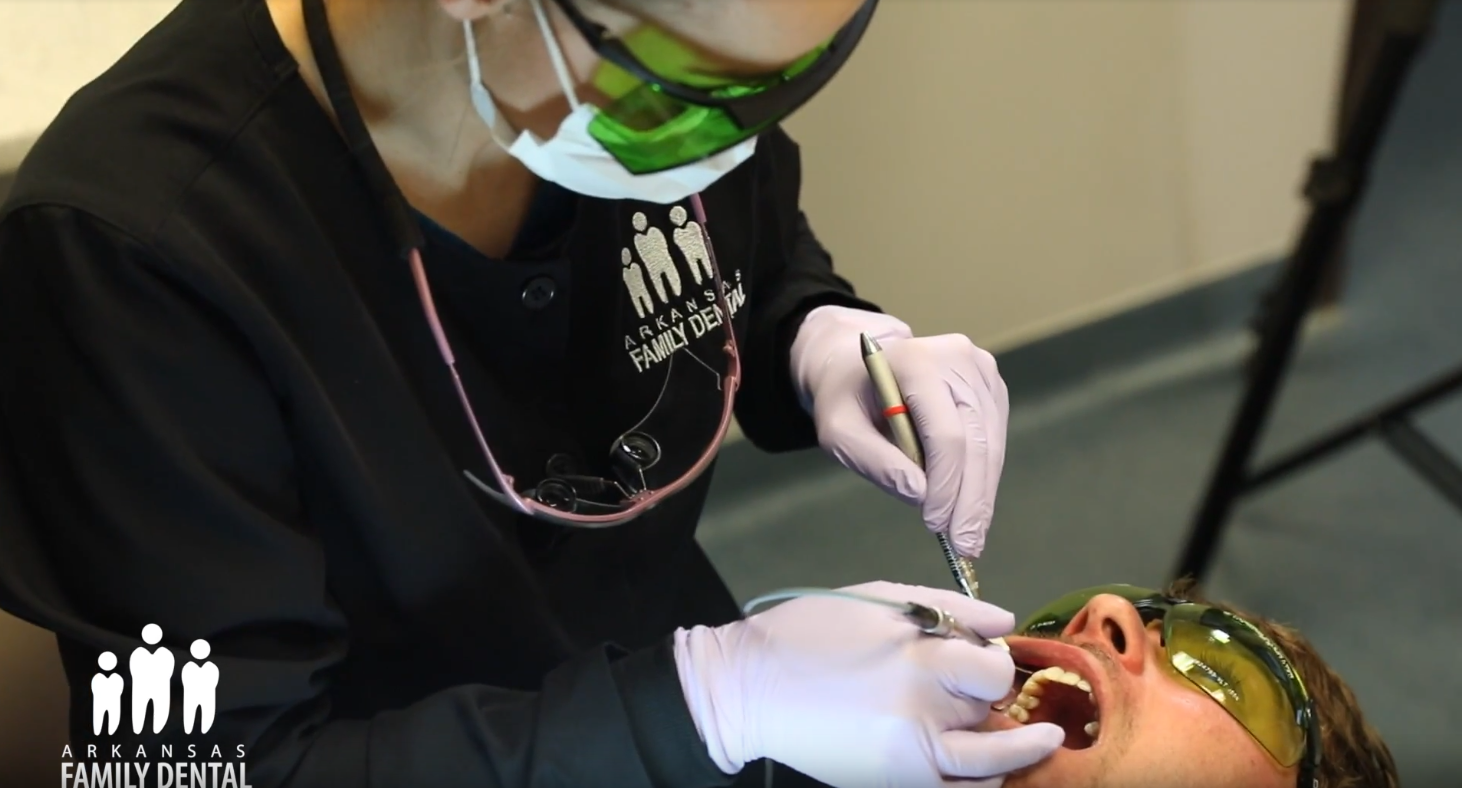Transcript
Hi. My name is Christy Stephenson and I’m a registered dental hygienist here at Arkansas Family Dental. Today, I’d like to talk to you about gum disease and treatment. Basically, you’ve got healthy teeth and gums in a good, ideal situation. We take this periodontal probe instrument to measure between your tooth and gum to determine the health of your gums in your mouth. So, good, healthy readings are between one and three millimeters. As you can see in this diagram here, when we place the instrument, it stops very quickly. There’s no bone loss, there’s no inflammation. You get as much as a two-millimeter reading in this illustration here. This is what is considered healthy and ideal.
So, when a patient has not had a cleaning in quite a while or other things come into the picture to cause gum disease to set in, you are not looking like this. You may actually have what we call gingivitis. So, this is sort of the pivotal stage here that we want to kind of see someone initially and catch them before it does have a chance to advance. When it has had a chance to advance, you have what is called early periodontitis. Early periodontitis, as you can see here, has affected the level of the bone. This is the healthy side. This is how it should look. This is the side where actually some bone loss has occurred. Some deepening of the pocket has progressed. The illustration shows some buildup here that is present underneath the gum line. Because that buildup is present, it is causing that gum to wedge away from the tooth and creating what we call a pocket. This is a very unhealthy situation. This can actually have a downward spiral and progress if it is not treated.
It can actually go into the moderate category. So, in the moderate category, you can have a deepening of the bone loss, of course. Deepening of the pocket, more accumulation of the bacteria and the debris. This is definitely a situation that is in need of care immediately because this can actually progress into a stage where you’re going to lose your teeth. We actually do treat a lot of patients here in the moderate stage. We do not have to refer them to a periodontist. So, we like to do non-surgical periodontal therapy here at Arkansas Family Dental.
We definitely want to treat patients who come in to see us in the moderate peritonitis category and in the early periodontitis category with what we call a deeper cleaning or scaling and root planing. So, with scaling and root planing, basically, that means that you need a specialized type of cleaning. We take a side of your mouth at a time. We anesthetize the right side, for instance, in one visit. You come back in a couple of weeks, we anesthetize the left side in another visit. So, when that anesthesia has taken place, we go under the gum line and very thoroughly clean away the debris, the bacteria, the calculus. All of the bad stuff and get that out with our specialized instruments and equipment and we also utilize a periodontal laser here at Arkansas Family Dental.
Not every office in town has the laser so we like to really utilize that in our training that we’ve received in that category. So, with the addition of the laser therapy and removing just the hard deposit from the tooth’s surface, we’re able to achieve a healthy situation, a healthy surface where
the tooth is absent of any bacteria, any bad stuff. So, that allows the tissue to then come back up around the necks of the teeth and close that periodontal pocket up so that becomes a healthier situation for you.
So, the way we achieve that is like I said earlier, have two visits and then in six weeks, you come back, and you actually have a recheck/reevaluation where we measure your gums with the periodontal probe and make sure that you’ve achieved a healthy state. After that, your hygienist will have you on a periodontal maintenance regimen, so you’ll come to see us every three to four months. Hopefully, maybe graduate to a six-month recall and just keep you healthy and keep you in good shape after that.
So, if you have any questions or issues or concerns, please call us. Our number is 501-312-7576. We’ll be happy to answer any questions you may have and look forward to working with you and getting your mouth in good shape.


Leave a Reply